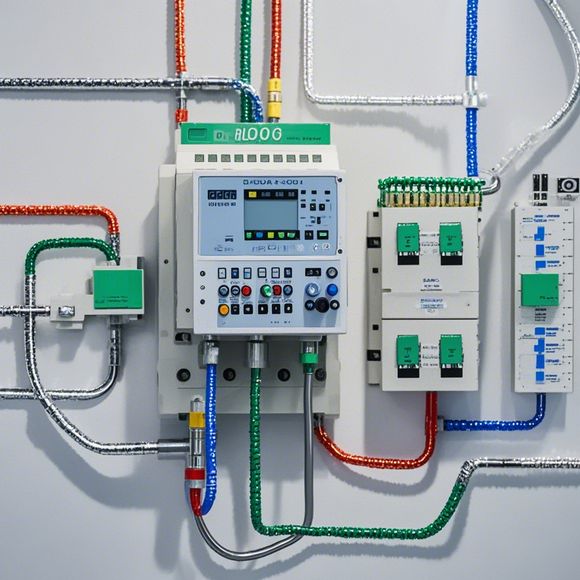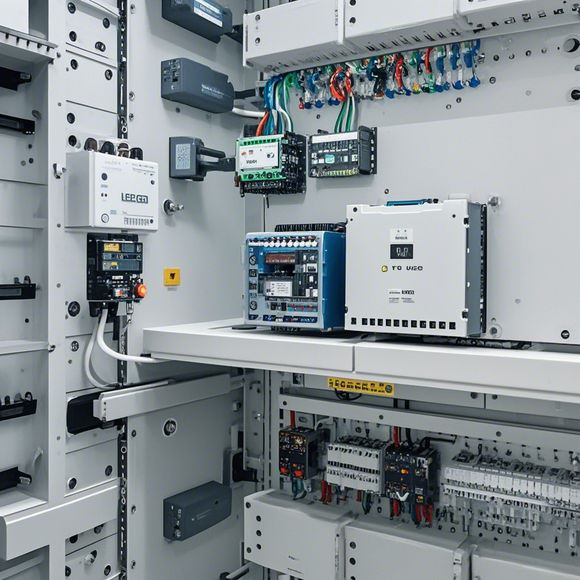The Role of Programmable Logic Controllers in Managing Industrial Processes
Programmable Logic Controllers (PLCs) are crucial in managing industrial processes. They enable precise control over the flow of materials and operations, which can lead to better efficiency, reduced downtime, and improved overall productivity. By programming PLCs with algorithms and logic rules, operators can automate complex tasks and make decisions quickly based on data from sensors and other devices. This not only saves time but also reduces human error and increases safety in hazardous environments. Additionally, PLCs can be easily modified or upgraded to accommodate new technologies or changes in the manufacturing process, making them a flexible and cost-effective solution for modern industrial applications.
In the world of manufacturing and engineering, the importance of industrial processes cannot be overstated. These processes are the backbone of any industry, from automotive to aerospace, and they require precise control to ensure quality and efficiency. One crucial component that plays a critical role in these processes is the Programmable Logic Controller (PLC).
A PLC, often referred to as a PIC or Programmable Integrated Circuit, is a digital computer system that controls and monitors industrial equipment. It is an essential tool for many industries because it allows for the automation of complex processes with minimal human intervention. By using software, PLCs can perform a wide range of functions, including monitoring, controlling, and managing industrial processes.
At its core, a PLC works by receiving input signals through sensors or other data sources, then processing these signals according to pre-set rules or algorithms. The result of this process is an output signal, which is used to control the operation of the industrial equipment. For example, if a sensor detects a change in temperature, the PLC will analyze the data and send an output signal to the heating or cooling system to adjust the temperature accordingly.
One of the key advantages of using PLCs is their flexibility. Unlike traditional mechanical or pneumatic controllers, PLCs are programmable, allowing for the customization of functions and settings to meet specific needs. This means that no matter what kind of process you need to control, there is a PLC that can be programmed to handle it. Additionally, PLCs have become increasingly sophisticated and reliable, making them ideal for high-performance applications such as chemical plants and oil refineries.

Another important aspect of PLCs is their ability to communicate with other devices within the industrial network. With modern networking technologies, PLCs can connect to other systems, such as SCADA (Supervisory Control and Data Acquisition) systems, to provide real-time data and feedback. This not only enhances the overall efficiency of the process but also enables predictive maintenance by monitoring equipment performance and identifying potential issues before they become major problems.
However, while PLCs offer numerous benefits, they also come with some challenges. One of the main concerns is reliability. Since PLCs are designed to handle complex and demanding industrial environments, they are subject to wear and tear over time. To address this issue, manufacturers have developed various solutions, such as using rugged components and incorporating redundancy into the system design.
Another challenge is programming complexity. While PLCs are highly flexible and adaptable, they can also be difficult to program for certain applications. This can lead to errors and inefficiencies if not done properly. To overcome this, many companies invest in specialized training programs for programmers, as well as the use of advanced development tools and languages that simplify programming tasks.
In addition to these technical challenges, there are also cultural and economic factors to consider when implementing PLCs in an organization. For example, there may be resistance from employees who are used to working with traditional control systems. Additionally, there may be costs associated with acquiring new hardware and software, as well as maintaining the system. However, with careful planning and investment, these challenges can be addressed and the benefits of PLCs can be realized.
In conclusion, Programmable Logic Controllers play a vital role in modern industrial operations. By providing precise control and automation capabilities, PLCs help organizations achieve higher productivity, lower costs, and improved safety. As with any technology, however, there are challenges to consider when implementing PLCs. Whether it's reliability, programming complexity, or cultural factors, careful planning and investment can help overcome these challenges and realize the full potential of PLCs in today's industrial landscape.
Content expansion reading:
Content:
Hey there! If you're new to the world of industrial automation or looking to refresh your knowledge on programmable logic controllers (PLCs), you've come to the right place. PLCs are the workhorses of the manufacturing industry, responsible for controlling and automating a wide range of processes. In this article, we're going to dive into the nitty-gritty of how PLCs work, so you can better understand their role in modern production systems.

First things first, let's define what a PLC is. A PLC is a digital computer designed to control and automate industrial electromechanical processes, like those found in manufacturing. They're tough, reliable, and designed to operate in harsh environments. Unlike traditional computers, PLCs are programmed using a series of "ladder logic" diagrams that look like electrical schematics. This makes them easy to understand for electricians and technicians who are familiar with electrical control circuits.
At the heart of a PLC is its central processing unit (CPU), which is responsible for executing the program that controls the process. The CPU communicates with input and output devices through input/output (I/O) modules. Inputs can be things like sensors or switches that provide data to the PLC, while outputs can be actuators, motors, or lights that the PLC controls.
When a PLC is first turned on, it runs through a startup routine called the power-on-self-test (POST). This ensures that all the components of the PLC are functioning correctly before it starts executing the user program. Once the program is running, the PLC continuously scans its inputs and updates the state of its outputs based on the program logic. This process is known as the scan cycle and it repeats continuously, making sure that the process is running smoothly.
PLCs are incredibly versatile and can be programmed to perform a wide variety of tasks. For example, they can be used to control the sequence of a production line, monitor temperatures in an industrial oven, or even manage the operation of a water treatment plant. The programming language used in PLCs is designed to be relatively simple and efficient, allowing operators to troubleshoot and modify programs as needed.
One of the key benefits of PLCs is their ability to handle complex tasks with high reliability. They can manage multiple tasks simultaneously, known as multitasking, which is crucial in industrial settings where processes often need to be synchronized. Additionally, PLCs can be programmed to respond to events in real-time, ensuring that any changes in the process are quickly and accurately addressed.
In summary, PLCs are essential components of modern manufacturing and process control. Their ability to automate and control a wide range of electromechanical processes with high reliability and flexibility has made them indispensable in industries such as automotive, food and beverage, and pharmaceuticals. Whether you're an experienced operator or just starting out, understanding the basics of PLCs is a valuable skill in the world of industrial automation.
Articles related to the knowledge points of this article:
PLC Controller Wiring Guideline
PLC Programming for Automation Control in the Manufacturing Industry
How to Use a PLC Controller for Your Business
PLC (Programmable Logic Controller) Control System Basics
The Role of Programmable Logic Controllers (PLCs) in Foreign Trade Operations